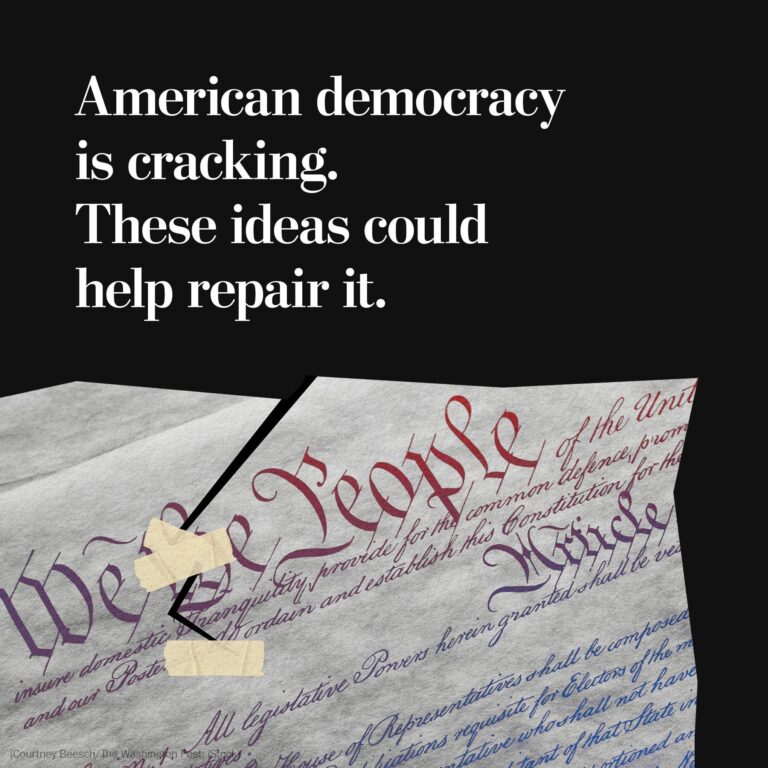Challenges Confronting American Democracy: Polarization, Disinformation, and Institutional Trust
Political Polarization and the Surge of Misinformation: Threats to Democratic Cohesion
The United States is currently grappling with intensifying political divisions that extend beyond mere ideological differences, fracturing the collective understanding of reality among its citizens. This growing chasm is exacerbated by social media platforms whose algorithms favor sensational and emotionally charged content, often at the expense of factual accuracy. These digital echo chambers accelerate the dissemination of misleading information, making it increasingly difficult for Americans to find common ground or trust in shared truths. Scholars and political analysts caution that this feedback loop of distrust jeopardizes the core democratic principles that sustain national stability.
Addressing these multifaceted challenges has proven difficult, with efforts often hindered by political contention and systemic inertia. The primary contributors to this crisis include:
- Coordinated disinformation efforts that exploit societal fractures for political gain
- Insufficient media literacy education across educational and community settings
- Highly partisan media outlets that reinforce ideological silos
- Declining confidence in electoral integrity and governmental institutions
| Issue | Severity | Current Trend |
|---|---|---|
| Disinformation Proliferation | Critical | Rising |
| Political Division | Extreme | Expanding |
| Electoral Trust | Minimal | Falling |
These intertwined pressures create a precarious political landscape, necessitating immediate and coordinated responses from policymakers and the public to rebuild democratic resilience.
Economic Disparities and Their Impact on Democratic Confidence
The widening gap in wealth and income distribution has significantly undermined the public’s trust in democratic institutions. As economic inequality intensifies—with the richest 1% now controlling a larger share of national wealth than at any point in recent history—many Americans feel alienated from the political process. This economic divide fuels voter apathy, deepens partisan animosities, and weakens mechanisms designed to ensure accountability and equitable representation. The concentration of political influence among affluent elites perpetuates this cycle, further marginalizing lower-income communities.
Key drivers of this erosion include:
- Disproportionate political clout: Wealthy individuals and interest groups wield outsized influence over legislation that safeguards their privileges.
- Barriers to legal equity: Under-resourced communities face systemic obstacles in accessing justice, diminishing faith in impartial governance.
- Stagnant social mobility: Economic hardships limit upward movement, fostering disenchantment among working- and middle-class voters.
| Metric | Year 2000 | Year 2023 |
|---|---|---|
| Wealth Held by Top 1% | 24% | 39% |
| Voter Participation Rate | 55% | 47% |
| Public Confidence in Congress | 40% | 16% |
Social Media’s Role in Deepening Divides and Weakening Civic Engagement
Once heralded as platforms for connection and information sharing, social media networks have increasingly become arenas of conflict where political and cultural tensions are magnified. Engagement-driven algorithms prioritize provocative and emotionally charged posts, often elevating misinformation and extremist content. This environment fosters ideological isolation, as users are frequently exposed only to viewpoints that reinforce their existing beliefs. Consequently, meaningful civic dialogue is replaced by rapid exchanges of hostility and suspicion.
Key factors contributing to this deterioration include:
- Algorithmic bias: Systems that favor sensationalism over balanced discourse, encouraging tribalism.
- Fragmented information landscapes: Users’ limited exposure to diverse perspectives reduces opportunities for constructive debate.
- Online anonymity and harassment: These discourage thoughtful participation and silence moderate voices.
| Phenomenon | Consequence |
|---|---|
| Echo Chambers | Strengthen pre-existing biases, hindering compromise |
| Misinformation Circulation | Weakens trust in credible information sources |
| Polarizing Content | Heightens social and political discord |
Strengthening Democracy: Electoral Reforms and Enhanced Civic Education
In response to these mounting challenges, comprehensive reforms and educational initiatives are essential to revitalize American democracy. Electoral reforms such as automatic voter registration and the establishment of independent redistricting commissions aim to eliminate systemic obstacles and reduce partisan gerrymandering. These changes promote transparency and fairness, thereby restoring public confidence in electoral outcomes.
Equally important are civic education programs that emphasize critical thinking, media literacy, and a deeper understanding of democratic institutions. Schools and community groups are increasingly adopting curricula designed to equip citizens with the skills necessary to identify misinformation and engage in respectful political dialogue. The following strategies are gaining traction nationwide:
- Automatic voter registration: Simplifies enrollment and boosts electoral participation.
- Ranked-choice voting: Encourages the election of broadly supported candidates, reducing polarization.
- Comprehensive civic literacy: Focuses on media analysis, critical evaluation, and rights awareness.
- Independent electoral oversight: Ensures accountability and curtails partisan manipulation.
Final Thoughts: Navigating the Future of American Democracy
The American democratic system is currently under significant strain from escalating political polarization, widespread misinformation, and diminishing institutional trust. Recognizing and addressing these interconnected challenges is vital to safeguarding the nation’s democratic heritage. Through transparent reforms, enhanced civic education, and active citizen engagement, the United States can work toward restoring the integrity and resilience of its democratic institutions. The path forward demands concerted effort from both leaders and the public to ensure that democracy remains vibrant and inclusive for future generations.







